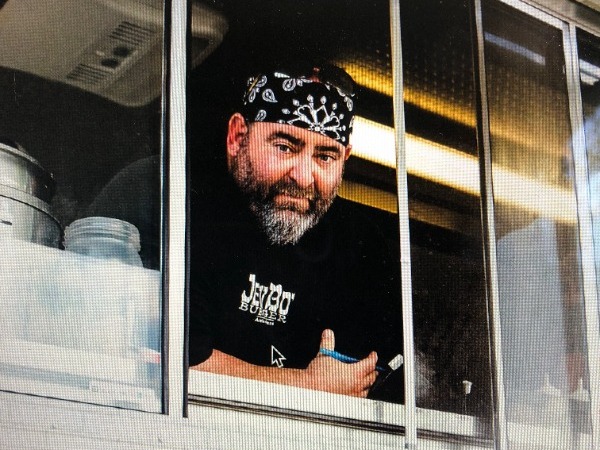
By Texas Business Now
Before he was flipping burgers, Morris Pittle was flipping brand strategies. A seasoned advertising creative and strategist, Pittle spent decades crafting stories for other companies—until one day, he decided it was time to tell his own. That story became JewBoy Burgers, a bold, culture-driven food truck turned restaurant empire that blends Jewish-American flavor with El Paso border-town soul. And in true Texas fashion, it all started with a dream—and a little grit.
From Creative to Culinary: The Unexpected Pivot
Pittle’s journey didn’t start with a craving for burgers—it started with a craving for creativity and connection. After years in the marketing and advertising world, he found himself burned out by the grind of client meetings, last-minute changes, and endless revisions. “I was just done,” he says. “Every time someone argued a price or wanted another round of changes, I thought—why am I doing this?”
In 2014, he returned to Austin, a city he had long admired for its creative energy. Armed with a line of credit, a desire to learn social media on his own terms, and a love for branding, he launched JewBoy Burgers—originally imagined as a t-shirt brand, then quickly evolving into a food truck. "It was a case study. I wanted to build something authentic, something that I owned completely."
A Burger With Culture (and No Tomatoes)
True to his roots, Pittle didn’t serve just any burger. He crafted a menu that reflected the unique blend of cultures that shaped him—growing up in a traditional Jewish home while immersed in the distinctive border-town flavor of El Paso. “El Paso isn’t Mexican or American—it’s the border,” he says. “It has its own culture, and I wanted to celebrate that.”
From using green chiles to offering latkes and queso, the menu is unapologetically personal. “We don’t do tomatoes,” he laughs. “I hate them. And they’re expensive. But that’s the thing—it’s my brand. I can do what I want.”
That blend of humor, culture, and flavor resonated. Within four years, JewBoy Burgers went from a passion project to being named Best Burger in Austin by Austin Monthly.
No Hype, Just Honesty
One thing you won’t find on JewBoy Burgers’ social media? Pittle posing with celebrities. Despite visits from the likes of Julian Edelman and UT athletes, he’s kept the brand focused on authenticity over hype. “They can post about it if they want, but that’s not who I am,” he says. “Success to me isn’t about going viral—it’s about being real.”
With over 26,000 organic Instagram followers and a fiercely loyal customer base, it’s clear the strategy is working.
Scaling Without Selling Out
Today, JewBoy Burgers is more than just one location. Pittle now operates additional food trailers focused on sliders, a sub shop, and a growing late-night presence in Austin’s bar scene. Yet, he’s cautious about growing too fast.
“I’m not successful,” he says. “I’m succeeding. There’s a difference. And I’m careful not to lose the soul of what we’ve built.”
That includes staying hands-on. Pittle still works the register a few days a week, guiding customers through their orders, chatting about spice levels and green chiles, and keeping the experience personal. “Customer experience is everything,” he says. “The more you talk to people, the better the experience, and the better chance they’ll come back.”
Advice for Aspiring Food Truck Owners
Asked what advice he’d give someone starting a food truck today, Pittle doesn’t hesitate. “Do your homework. Understand your product. And know your location—it matters more than people think.”
He also warns against being seduced by fast hype or relying on platforms like Groupon. “You can’t discount yourself into profitability,” he says. “I don’t do discounts. I do quality.”
Looking Ahead: Growth with Intention
As for what’s next? More slider trailers, possibly another JewBoy Burgers location in Austin or Houston, and a continued focus on staying true to the brand. “I don’t want to grow just to grow,” he says. “Every new move has to make sense with the narrative.”
And that narrative? It’s unapologetically Morris. “Everything in the restaurant reflects me—if it makes me smile, it goes up on the wall,” he says. “I believe if you’re honest with your brand, if you really give a shit, customers will feel that. And they’ll come back.”
In a city full of food trucks, few have told their story as clearly—or as deliciously—as JewBoy Burgers.
📍 Flagship Location: JewBoy Burgers, Austin, TX
📍 Other Concepts: JewBoy Sub Shop, JewBoy Sliders (East 6th & South Lamar)
📲 Follow: @JewBoyBurgers on Instagram
 Add Row
Add Row  Add
Add 




Write A Comment